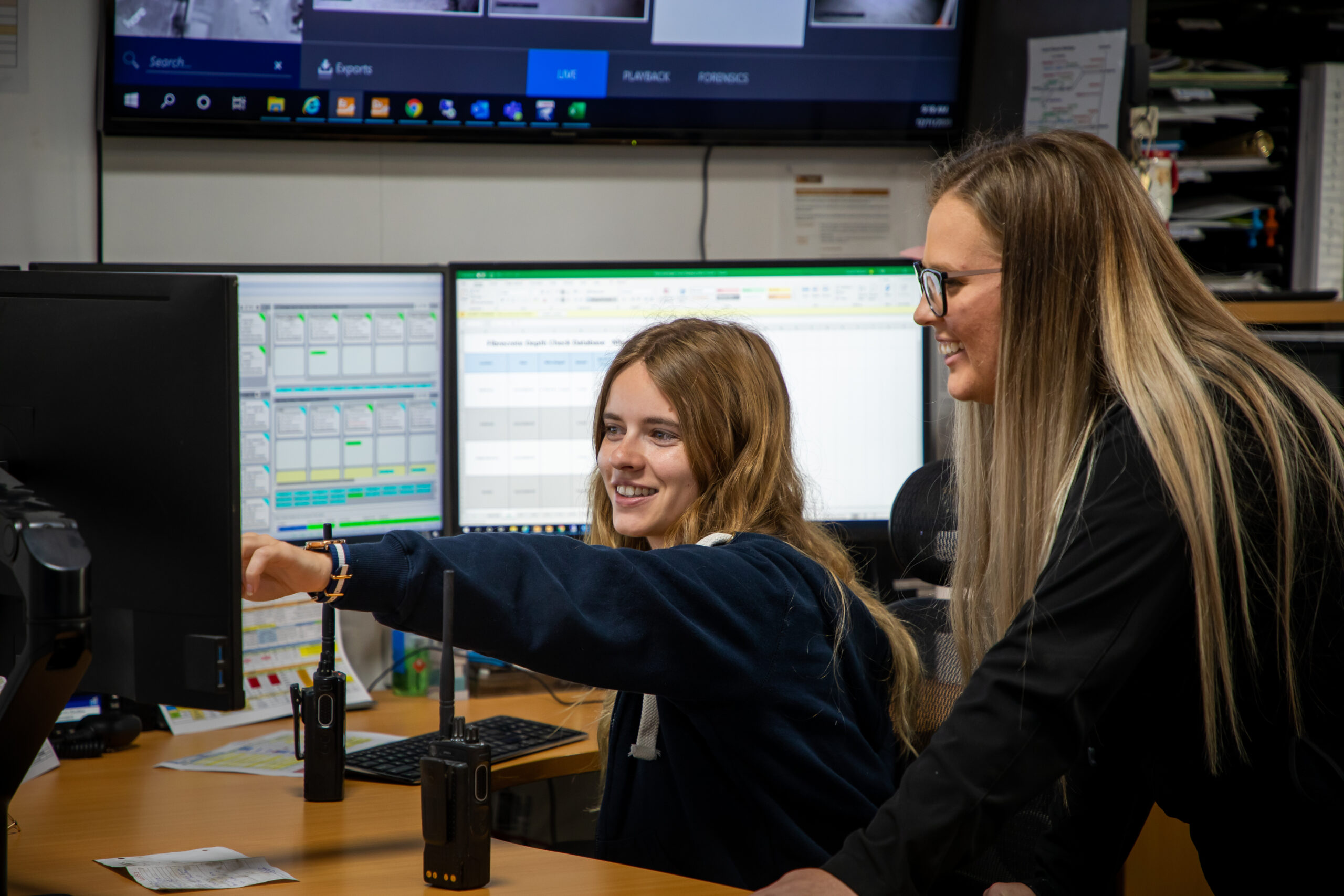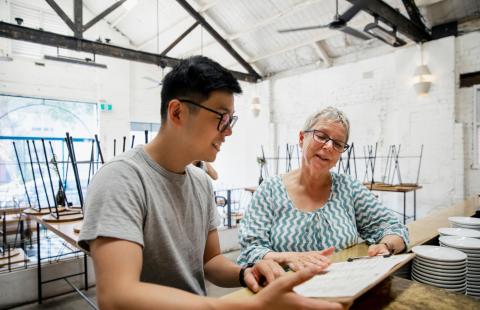The times are unprecedented, uncertain, and difficult. Caution is abundant. Everyone rose to the challenge. We are all in this together. And hindsight is 2020.
What can we say about keeping the University running during a pandemic that won’t sound like a cliché?
Nothing, honestly. The last few semesters have been tough-and it’s not over. And, it’s not just us. While the Keweenaw may be at the ends of the earth, Michigan Tech’s community does not live in a vacuum. Quarantine, political tension, protests, remote instruction, curbside pickup, nasopharyngeal swabs-everyone has been and continues to deal with it all.
Let’s take a moment to appreciate that. Everyone has been and continues to deal with it all. Some days, showering regularly and putting on pants deserves a trophy. No one is handing them out, of course, but it doesn’t mean we don’t recognize the effort (and appreciate your good hygiene-thanks).
No one is going to hand Michigan Tech a trophy for our accomplishments either. Besides, we still have a lot of work to do. But we want to tell you about what we have done because you deserve to know and there are many people who deserve to be thanked.
We’d keep you here through the New Year listing everyone’s individual names and heroic deeds, so we’re going to focus on major events and adaptations as they unfolded through the spring, summer, and fall. But this story is not The End. We are living history, and the Michigan Tech Archives is busy documenting campus experiences, so stay tuned (which is easy to do if you subscribe to our weekly news update).
The Early Days
The World Health Organization declared COVID-19 a pandemic on March 11. After the first furious, panicky moments of sh*t, sh*t, sh*t, sh*t, the higher ed world stepped up and got to work.
“The Michigan Tech community did what it does best. Take a deep breath, take stock, solve for x, repeat.”
That meant shifting to remote instruction no later than Wednesday, March 18. The timeline was emailed out March 13, the Friday of spring break, meaning all faculty, students, and staff had five days to make it happen.
Michigan Tech was not alone. Higher ed journalists started a public Google Sheet tracking campus closures: Within three days, hundreds of colleges and universities announced they were going remote. There was a big splash when Harvard asked all students to leave campus and the education community confronted how many students had nowhere to go. Similar challenges arose with access to food and access to decent internet. Furloughs and layoffs hit campuses. While buildings, labs, cafés, sidewalks, and malls emptied, the peanut gallery filled up. People wondered if online education would finally have its day, if the value of higher education could handle a virtual mirror, if the whole system would combust.
No one chose to be upended into this bottomless dumpster fire. But when life hands you garbage, you engineer that crap into a mobile sterilization oven-and you make sure you hammer out the design of this and other lifeboats alongside the technical communicators, social scientists, mathematicians, librarians, wastewaster engineers, and physicist-entrepreneurs in your community. Yes, Michigan Tech lost people, teaching was insane, and learning was hard. But thanks to the task forces, instructors, students, parents, and staff, the campus community flamed through spring semester and survived mostly intact.
Here’s a glimpse of what adaptation looked like. The University Senate met over Zoom. The William G. Jackson Center for Teaching and Learning coached first-time online instructors and hosted weekly Zoom discussions with the IDEA Hub to talk shop. Counseling Services-now the Center for Student Mental Health and Well-being-jumped to telehealth appointments. Information Technology rushed to produce remote access guides and help instructors set up technology at home. We also wouldn’t be here without the staff in Facilities and Dining Services, who overhauled everything from how we use elevators to classroom cleaning to serving take-out food.
Dog Days of Summer
The heat and speed of summer would not have been possible without some very cold, very long days in the spring.
One group braved the cold to build a portable sanitizing unit for personal protective equipment (PPE) in a refrigerated shipping container dubbed the Mobile Thermal Utility (MTU) Sanitizer. Another crew took a biomedical engineering teaching lab and within six weeks turned it into a medical-grade COVID-19 testing facility, which has run more than 20,000 tests so far. Researchers began preliminary tests to track viral traces in wastewater. The Great Lakes Research Center, which now hosts the COVID-19 testing facility, also made sure pandemic delays did not stop research and monitoring on the big lake. Engineers got to work with medical doctors and makers around the world on open-source designs for 3D-printed respiratory tech.
Oh, yeah. And graduation happened. Class of 2020: You have already gone down in history.
Remote instruction continued over the summer to give the campus community time to figure out how in-person instruction would work. That’s where MTU Flex came in.















